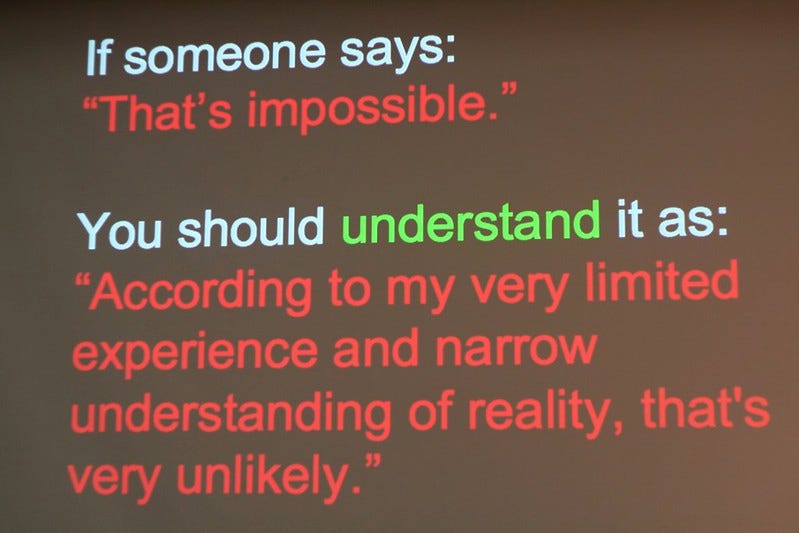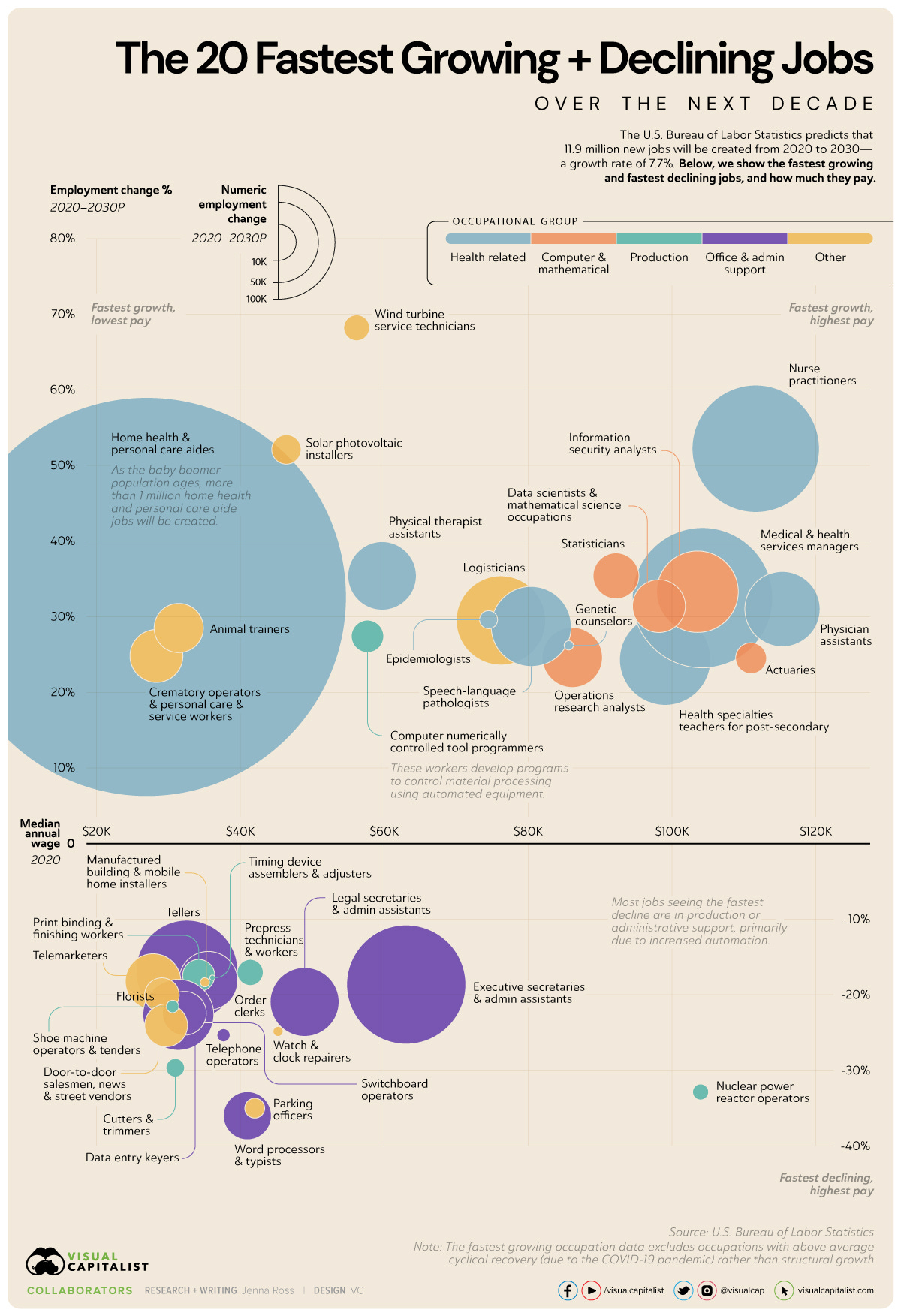This week’s toy: a crypto-trading hamster that proves (for a moment) that the stock market can be a random walk by beating professional traders. Why own an Ape, a Lion, or other NFTs when you could have a hamster instead? 🤪 Edition No. 62 of this newsletter is here - it’s October 3, 2021.
The Big Idea
Why would you consider working at an early-stage startup? It might not be right for you. Startups try to make the impossible a reality. As Paul Buchheit explained, impossible also means “unlikely.”

Startups provide the adrenaline rush of creating something from nothing. They also are a high-wire act where you might not make it to the other side unscathed.
Startups are a place where you will meet some of the most unusual and amazing people on the planet. These people make it possible to take the impossible and turn it from unlikely into possible.
There are a few reasons why I love working at small companies that are trying to solve large problems.
Startups are a forcing function in action
At bigger companies, there is often someone else to do the work along with you. At startups, the work stops with you. Getting an item done is up to you, so get going! Seeing the results of that push are great. The pressure can also be draining. One of the things I’ve learned at startups is that every day, you’re going to be watching something drop that is a responsibility. The trick is knowing which things are ok to drop and letting your team know why you are choosing not to do them.
The ability to make decisions quickly is a superpower
You might not be right. But decide anyway. Most of the decisions you make in a startup will not be irreversible. But they will stop you from proceeding if you can’t increase the rate of decisions.
One way to approach this issue is to make lots of decisions every day, and keep a record of them.
A task might look like:
review the material / content / bug / feature
provide a 3 sentence summary
identify blockers at making it better
and the consequence for not changing this item
Add the task to a running list. If you don’t finish the task, it’s probably the first thing you need to look at the next day. If your list is too long, ask for help.
Trust your instincts, plus data.
Making an impact in a startup is something you do on a daily basis. One of the things that makes it rewarding is that the feedback loop from a customer, a teammate, or the product itself is much shorter than it would be in a larger company.
So also be cautious. Check yourself the next time you want to add a feature or fix a problem, and ask yourself whether you have more high-class problems already on your plate. The art of being able to say “no”, backed up by data that answers the hypothesis you are trying to answer, will always go farther than just saying no.
Startups are fun
Don’t forget the sheer joy of being in a startup company. It’s amazing to be part of a committed group of people trying to make a dent in the universe, and almost always more fun at an early stage company than anywhere else. Why join a startup? Because I can’t stop working at them.
What’s the takeaway? Startups give you the opportunity to level up faster than anywhere else, introduce you to amazing humans, and to see the impact of your work almost every day. I keep getting drawn to them, and joined Syncari this week as a Product Manager. (If you want to learn more about what we’re doing with data automation, orchestration, and data quality, let me know!)
A Thread from This Week
Twitter is an amazing source of long-form writing, and it’s easy to miss the threads people are talking about.
This week’s thread: on starting a new job at an early stage startup.

Links for Reading and Sharing
These are links that caught my eye.
1/ Danger Time - Sean Lane at Drift wrote a great piece this week about looking out for danger in your organization. By creating a Danger Dashboard, you’re helping your ops team and the rest of the company by anticipating the most likely problems you might have. We do disaster planning, but don’t often do “stuff looks bad” planning as part of incident response. This is an excellent prompt to calibrate your metrics to know when things go wrong.
2/ Future Jobs Rely on Data - Don’t take my word for it. Some of the fastest growing jobs over the next decade are those that rely on data, including data scientists, information security, and operations research.
One thing the above graphic doesn’t highlight is the need for other jobs to include data literacy. “Office jobs” have become knowledge work and the data that exists across systems is becoming a kind of connective tissue for that work. An account in your CRM is the same company that’s in your help desk - so those two systems should know about each other.
3/ Companies for every purpose… - Matt Turck shared his latest data landscape. There are a lot of companies in the data space. What do you think when looking at this list? That there is opportunity in lots of different market categories and that the amount of data being observed, managed, and analyzed is exploding.
On the Reading/Watching List
Reading: The Art of Doing Science and Engineering, by Richard Hamming. How do you learn how to learn? Hamming states it elegantly in his preface, “teachers should prepare the student for the student’s future, not for the teacher’s past.” By entering a practice of lifelong learning, you unlock the future.
Another read: Priya Parker on the Art of Gathering. Have you wondered why when you go to a meeting or a party (remember those, pre-COVID?) why sometimes it’s a great experience and sometimes they fall flat? There are expectations for both meeting attendees and meeting hosts, and setting up signposts for what’s going to happen, how it will happen, and how you recap what happened. Being intentional about your meetings will deliver better outcomes.
What to do next
Hit reply if you’ve got links to share, data stories, or want to say hello.
I’m grateful you read this far. Thank you. If you found this useful, consider sharing with a friend.
Want more essays? Read on Data Operations or other writings at gregmeyer.com.
The next big thing always starts out being dismissed as a “toy.” - Chris Dixon





